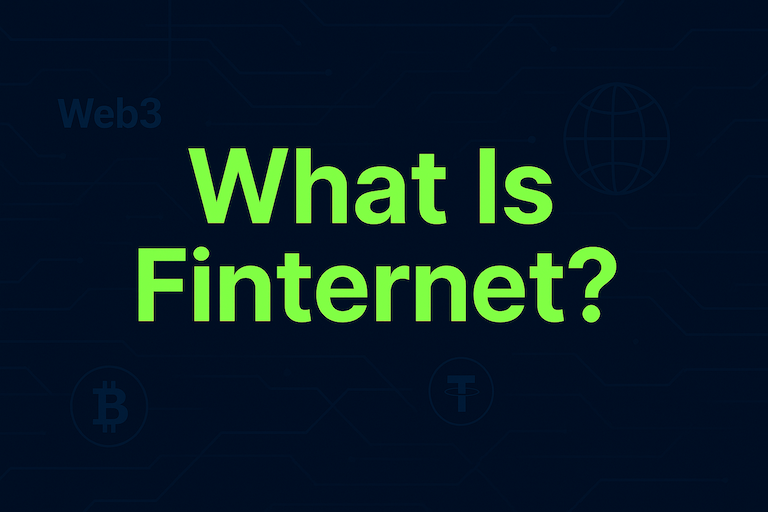What is a Smart Contract? An Introduction to Blockchain Automation
Mar 21, 2025
Smart contracts have emerged as a revolutionary component of blockchain technology, offering a new way to automate agreements and transactions without the need for intermediaries. These self-executing contracts contain the terms of the agreement directly written into code, enabling trustless interactions between parties. As the adoption of cryptocurrencies and blockchain grows, understanding smart contracts becomes essential for anyone interested in the future of digital transactions. This blog post will explore the fundamental concepts behind smart contracts, their applications, and the benefits they provide in various industries. By the end, readers will have a clearer understanding of how smart contracts work and their potential to reshape traditional contract systems.
Understanding Smart Contracts
At their core, smart contracts are programmable agreements that execute automatically when predetermined conditions are met. They operate on blockchain technology, which ensures that all transactions are secure, transparent, and immutable. This means once a smart contract is deployed, its code cannot be altered, making it a reliable method for executing agreements. The code within these contracts defines the rules and penalties associated with the agreement, providing clarity and reducing the likelihood of disputes. As digital interactions become more commonplace, the ability of smart contracts to facilitate trustless agreements is increasingly valuable.
Smart contracts eliminate the need for intermediaries, reducing transaction costs.
They ensure transparency since all parties can view the contract terms and execution.
Execution is automatic, which speeds up processes significantly.
They are immutable, meaning once deployed, the terms cannot be altered.
Smart contracts can be programmed for a wide variety of scenarios, from simple transactions to complex agreements.
The Mechanism of Smart Contracts
The operation of a smart contract depends on blockchain technology, which serves as a decentralized ledger for recording transactions. When a smart contract is created, it is stored on the blockchain, allowing all parties involved to access and verify its terms. The contract is triggered by events or conditions specified in the code, and once activated, it executes the agreed-upon actions without requiring human intervention. This self-execution capability is one of the primary advantages of smart contracts, as it minimizes the potential for human error and delays associated with traditional contracts. Moreover, the decentralized nature of blockchain enhances security, making it highly resistant to tampering.
Each smart contract is stored on a blockchain, ensuring data integrity.
Events can trigger the execution of smart contracts automatically.
The code defines the conditions and actions without ambiguity.
Decentralization prevents single points of failure or control.
Security features protect against unauthorized modifications.
Applications of Smart Contracts
Smart contracts are being utilized in various sectors, showcasing their versatility and effectiveness in streamlining operations. In the financial industry, they facilitate automated transactions, lending agreements, and asset trading. Real estate transactions benefit from smart contracts by simplifying the buying and selling process, allowing for quicker and safer transfers of property ownership. Supply chain management also sees improvements, as smart contracts can track goods and verify compliance with terms automatically. Furthermore, industries such as healthcare, gaming, and insurance are beginning to explore the potential of smart contracts to enhance their operations.
In finance, smart contracts streamline lending and trading processes.
Real estate transactions are simplified, speeding up ownership transfers.
Supply chains can automatically verify compliance and track goods.
Healthcare can utilize smart contracts for patient data management.
The gaming industry can create decentralized applications (dApps) using smart contracts.
Benefits of Smart Contracts
The adoption of smart contracts offers numerous benefits that can transform traditional business practices. One of the most significant advantages is cost reduction, as eliminating intermediaries means lower fees for all parties involved. Furthermore, the speed of execution is dramatically improved, as contracts are processed automatically without delays. Transparency is another critical benefit, as all parties can access the contract terms, fostering trust and reducing disputes. Additionally, the increased security provided by blockchain technology ensures that contracts are protected against fraud and unauthorized changes.
Cost reduction through the elimination of intermediaries.
Faster execution of transactions and agreements.
Enhanced transparency fosters trust between parties.
Increased security against fraud and tampering.
Improved accuracy by minimizing human error in contract execution.
Challenges and Considerations
Despite their advantages, smart contracts also present challenges that need to be addressed. One of the primary concerns is the necessity for accurate coding, as any errors in the contract code can lead to unintended consequences. Additionally, legal recognition of smart contracts varies by jurisdiction, which can complicate their enforcement. The reliance on external data sources, known as oracles, can introduce vulnerabilities if the data is inaccurate or manipulated. Furthermore, the complexity of some agreements may not easily translate into code, requiring careful consideration and expertise.
Accurate coding is crucial to avoid unintended outcomes.
Legal recognition can vary, affecting contract enforceability.
External data sources can introduce risks if compromised.
Complex agreements may be difficult to codify effectively.
Ongoing regulatory developments may impact smart contract use.
Conclusion
Smart contracts represent a significant advancement in how agreements are formed and executed, leveraging the power of blockchain technology to automate processes. Their ability to facilitate secure, transparent, and efficient transactions has the potential to disrupt many industries and redefine the concept of contracts. As understanding and adoption of smart contracts grow, they will likely become an integral part of the digital economy. Individuals and businesses alike should consider how smart contracts can enhance their operations and streamline their agreements in a rapidly evolving technological landscape.
Start your safe cryptocurrency journey now
Fast and secure deposits and withdrawals, OSL safeguards every transaction !


